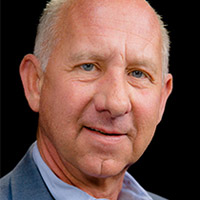Section 213 Medical, Dental, etc., Expenses

Section 213 Medical, Dental, etc., Expenses
(a) Allowance of deduction
There shall be allowed as a deduction the expenses paid during the taxable year, not compensated for by insurance or otherwise, for medical care of the taxpayer, his spouse, or a dependent, to the extent that such expenses exceed 7.5 percent of adjusted gross income.
(b) Limitation with respect to medicine and drugs
An amount paid during the taxable year for medicine or a drug shall be taken into account under subsection (a) only if such medicine or drug is a prescribed drug or is insulin.
(c) Special rule for decedents
(1) Treatment of expenses paid after death
For purposes of subsection (a), expenses for the medical care of the taxpayer which are paid out of his estate during the 1-year period beginning with the day after the date of his death shall be treated as paid by the taxpayer at the time incurred.
(2) Limitation
Paragraph (1) shall not apply if the amount paid is allowable under section 2053 as a deduction in computing the taxable estate of the decedent, but this paragraph shall not apply if (within the time and in the manner and form prescribed by the Secretary) there is filed—
(A) a statement that such amount has not been allowed as a deduction under section 2053, and
(B) a waiver of the right to have such amount allowed at any time as a deduction under section 2053.
(d) Definitions
For purposes of this section—
(1) The term “medical care” means amounts paid—
(A) for the diagnosis, cure, mitigation, treatment, or prevention of disease, or for the purpose of affecting any structure or function of the body,
(B) for transportation primarily for and essential to medical care referred to in subparagraph (A),
(C) for qualified long-term care services, or
(D) for insurance (including amounts paid as premiums under part B of title XVIII of the Social Security Act, relating to supplementary medical insurance for the aged) covering medical care referred to in subparagraphs (A) and (B) or for any qualified long-term care insurance contract.
In the case of a qualified long-term care insurance contract, only eligible long-term care premiums (as defined in paragraph (10)) shall be taken into account under subparagraph (D).
(2) Amounts paid for certain lodging away from home treated as paid for medical care.
— Amounts paid for lodging (not lavish or extravagant under the circumstances) while away from home primarily for and essential to medical care referred to in paragraph (1)(A) shall be treated as amounts paid for medical care if—
(A) the medical care referred to in paragraph (1)(A) is provided by a physician in a licensed hospital (or in a medical care facility which is related to, or the equivalent of, a licensed hospital), and
(B) there is no significant element of personal pleasure, recreation, or vacation in the travel away from home.
The amount taken into account under the preceding sentence shall not exceed $50 for each night for each individual.
(3) Prescribed drug.— The term “prescribed drug” means a drug or biological which requires a prescription of a physician for its use by an individual.
(4) Physician.— The term “physician” has the meaning given to such term by section 1861(r) of the Social Security Act.
(5) Special rule in the case of child of divorced parents, etc.— Any child to whom section 152(e) applies shall be treated as a dependent of both parents for purposes of this section.
(6) In the case of an insurance contract under which amounts are payable for other than medical care referred to in subparagraphs (A), (B), and (C) of paragraph (1)—
(A) no amount shall be treated as paid for insurance to which paragraph (1)(D) applies unless the charge for such insurance is either separately stated in the contract, or furnished to the policyholder by the insurance company in a separate statement,
(B) the amount taken into account as the amount paid for such insurance shall not exceed such charge, and
(C) no amount shall be treated as paid for such insurance if the amount specified in the contract (or furnished to the policyholder by the insurance company in a separate statement) as the charge for such insurance is unreasonably large in relation to the total charges under the contract.
(7) Subject to the limitations of paragraph (6), premiums paid during the taxable year by a taxpayer before he attains the age of 65 for insurance covering medical care (within the meaning of subparagraphs (A), (B), and (C) of paragraph (1))
For the taxpayer, his spouse, or a dependent after the taxpayer attains the age of 65 shall be treated as expenses paid during the taxable year for insurance which constitutes medical care if premiums for such insurance are payable (on a level payment basis)
Under the contract for a period of 10 years or more or until the year in which the taxpayer attains the age of 65 (but in no case for a period of less than 5 years).
(8) The determination of whether an individual is married at any time during the taxable year shall be made in accordance with the provisions of section 6013 (d) (relating to determination of status as husband and wife).
(9) Cosmetic surgery.—
(A) In general.— The term “medical care” does not include cosmetic surgery or other similar procedures, unless the surgery or procedure is necessary to ameliorate a deformity arising from, or directly related to, a congenital abnormality, a personal injury resulting from an accident or trauma, or disfiguring disease.
(B) Cosmetic surgery defined.— For purposes of this paragraph, the term “cosmetic surgery” means any procedure which is directed at improving the patient’s appearance and does not meaningfully promote the proper function of the body or prevent or treat illness or disease.
(10) Eligible long-term care premiums.—
(A) In general.— For purposes of this section, the term “eligible long-term care premiums” means the amount paid during a taxable year for any qualified long-term care insurance contract covering an individual, to the extent such amount does not exceed the limitation determined under the following table:
In the case of an individual with an attained age before the The limitation close of the taxable year of: is: 40 or less $ 200 More than 40 but not more than 50 375 More than 50 but not more than 60 750 More than 60 but not more than 70 2,000 More than 70 2,500.
(B) Indexing.—
(i) In general.— In the case of any taxable year beginning in a calendar year after 1997, each dollar amount contained in subparagraph (A) shall be increased by the medical care cost adjustment of such amount for such calendar year. If any increase determined under the preceding sentence is not a multiple of $10, such increase shall be rounded to the nearest multiple of $10.
(ii) Medical care cost adjustment.— For purposes of clause (i), the medical care cost adjustment for any calendar year is the percentage (if any) by which—
(I) the medical care component of the Consumer Price Index for August of the preceding calendar year, exceeds
(II) such component for August of 1996.
The Secretary shall, in consultation with the Secretary of Health and Human Services, prescribe an adjustment which the Secretary determines is more appropriate for purposes of this paragraph than the adjustment described in the preceding sentence, and the adjustment so prescribed shall apply in lieu of the adjustment described in the preceding sentence.
(11) Certain payments to relatives treated as not paid for medical care.— An amount paid for a qualified long-term care service provided to an individual shall be treated as not paid for medical care if such service is provided—
(A) by the spouse of the individual or by a relative (directly or through a partnership, corporation, or other entity) unless the service is provided by a licensed professional with respect to such service, or
(B) by a corporation or partnership which is related to the individual.
For purposes of this paragraph, the term “relative” means an individual bearing a relationship to the individual which is described in any of paragraphs (1) through (8) of section 152 (a). This paragraph shall not apply for purposes of section 105 (b) with respect to reimbursements through insurance.
(e) Exclusion of amounts allowed for care of certain dependents
Any expense allowed as a credit under section 21 shall not be treated as an expense paid for medical care.
We hope you found this article about “Section 213 Medical, Dental, etc., Expenses” helpful. If you have questions or need expert tax or family office advice that’s refreshingly objective (we never sell investments), please contact us or visit our Family office page or our website at www.GROCO.com.
To receive our free newsletter, contact us here.
Subscribe our YouTube Channel for more updates.

Alan Olsen, is the Host of the American Dreams Show and the Managing Partner of GROCO.com. GROCO is a premier family office and tax advisory firm located in the San Francisco Bay area serving clients all over the world.
Alan L. Olsen, CPA, Wikipedia Bio

GROCO.com is a proud sponsor of The American Dreams Show.

The American Dreams show was the brainchild of Alan Olsen, CPA, MBA. It was originally created to fill a specific need; often inexperienced entrepreneurs lacked basic information about raising capital and how to successfully start a business.
Alan sincerely wanted to respond to the many requests from aspiring entrepreneurs asking for the information and introductions they needed. But he had to find a way to help in which his venture capital clients and friends would not mind.
The American Dreams show became the solution, first as a radio show and now with YouTube videos as well. Always respectful of interview guest’s time, he’s able to give access to individuals information and inspiration previously inaccessible to the first-time entrepreneurs who need it most.
They can listen to venture capitalists and successful business people explain first-hand, how they got to where they are, how to start a company, how to overcome challenges, how they see the future evolving, opportunities, work-life balance and so much more..
American Dreams discusses many topics from some of the world’s most successful individuals about their secrets to life’s success. Topics from guest have included:
Creating purpose in life / Building a foundation for their life / Solving problems / Finding fulfillment through philanthropy and service / Becoming self-reliant / Enhancing effective leadership / Balancing family and work…

MyPaths.com (Also sponsored by GROCO) provides free access to content and world-class entrepreneurs, influencers and thought leaders’ personal success stories. To help you find your path in life to true, sustainable success & happiness. It’s mission statement:
In an increasingly complex and difficult world, we hope to help you find your personal path in life and build a strong foundation by learning how others found success and happiness. True and sustainable success and happiness are different for each one of us but possible, often despite significant challenges.
Our mission at MyPaths.com is to provide resources and firsthand accounts of how others found their paths in life, so you can do the same.
Finding Your Career | Leni Miller
Episode Transcript of: Finding Your Career | Leni Miller Alan Welcome back. I’m here today with Laney Miller. She is the president and founder at EAA search company that’s focusing on helping individuals find the right type of work. Laney, welcome to today’s show. Thank you. Can you give me your background of how…
Ethics Freedom and Sequester | Mike Conaway
Ethics Freedom and Sequester | Mike Conaway Transcript: Announcer 0:00 Welcome to American Dreams keys to success with your host, Alan Olsen. Alan 0:05 I’m here today with Congressman Mike Conway. And, Mike, enjoy having you here on today’s show. Mike 0:13 Well, that’s it for me here. Glad to be here. Thanks for having…
Serial Success | Montgomery Kersten
Interview Transcript of: Serial Success | Montgomery Kersten Alan Welcome back. I’m here today with Monty Kersten money inside Silicon Valley, entrepreneur and money. I want to first start in to give me a timeline of your background, how you got to where you are today. Introduction to Montgomery Kersten, bio further down. Monty Well,…
Small Business Strategy | Steve Collins
Episode Transcript of: Small Business Strategy | Steve Collins Alan Welcome back. I have here today with me Steve Collins. He’s the founder and president of Marvel main. Steve, welcome to today’s show. Steve Thanks, Alan. Thanks for having me here today. Introduction of Steve Collins and his small business history, his bio can be…




